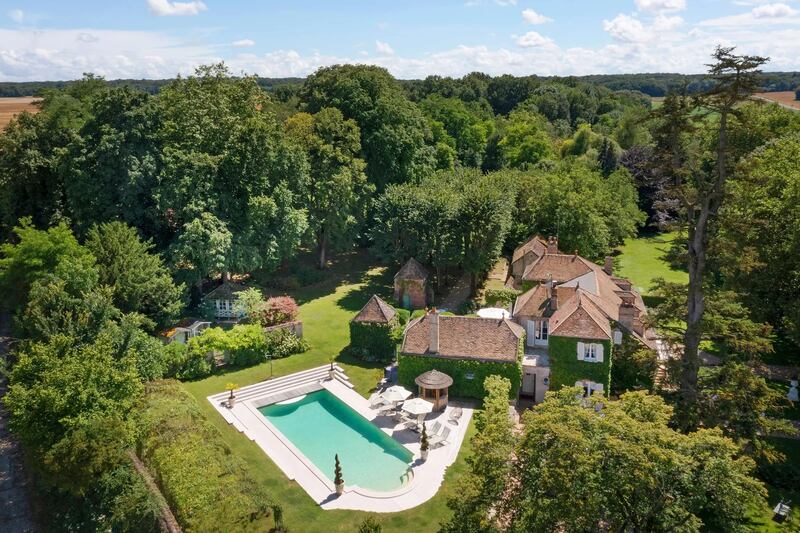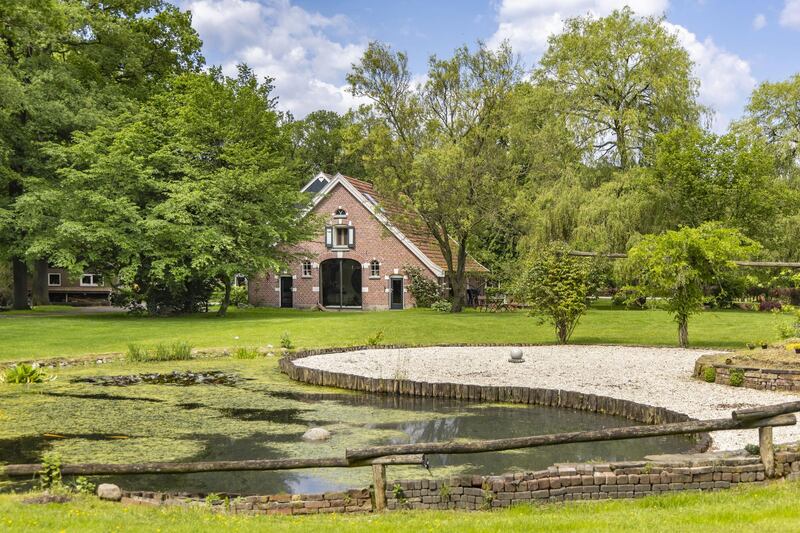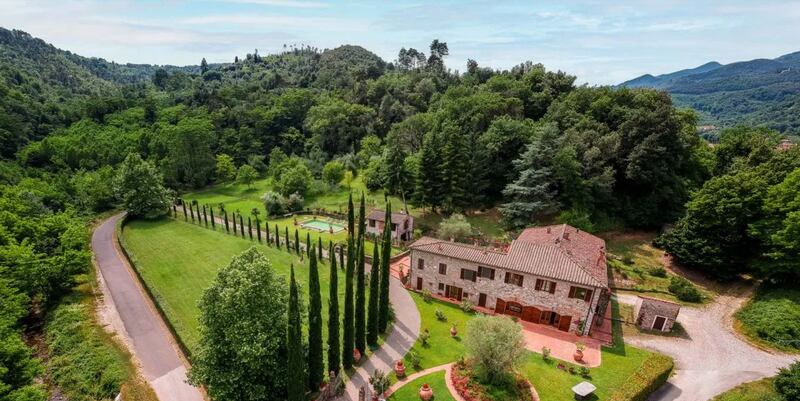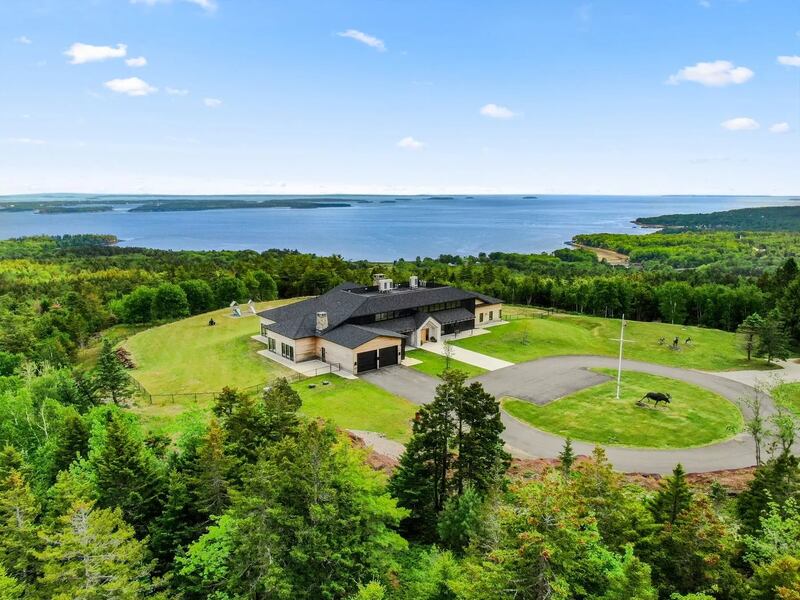
Voltaire’s great satirical novella, Candide, concludes with the beleaguered hero’s ever-optimistic tutor, Dr. Pangloss, still asserting that despite all their terrible ordeals, they do indeed live “in this best of all possible worlds.”
"All that is very well," Candide replies, “but let us cultivate our garden.”
It was 1759. Europe and the Americas were in the middle of The Seven Years’ War. Voltaire’s parodic romance was a rebuke of the metaphysical optimism of the age. Searching for meaning? Then let’s just take care of our garden.
Perhaps that’s why Voltaire’s sentiment has stuck around for 265 years.
Ask anyone who has tended a family garden, grove, orchard, or vineyard. Those fresh-picked sugar snap peas, those vine-ripened tomatoes that melt in the mouth, our own wine grapes, our own olive oil, any and all grow sweeter, riper, and fresher from our own labor and loving care.
Farm-to-table living bonus points? Lower carbon footprint, energy efficiency, and farewell to produce that looks (and tastes) like it’s from a 1970s bowl of faux plastic fruit gathering dust somewhere.
Therefore, Luxury Defined has cultivated its own garden of pastoral properties with an emphasis on farm-to-table living.
1. 18th-Century Manor in Lorrez-le-Bocage-Préaux, Île de France, France
 Opens in new window
Opens in new windowThis manor house lies in a private, wooded demesne in the village of Lorrez-le-Bocage-Préaux, just south of Fontainebleau.
Encompassing nearly 10 acres, the grounds are a delightful mix of walled and landscaped formal gardens, dovecotes, vegetable patches, an orchard, a heated swimming pool, and a tennis court.
The 18th-century manor house is as pretty as a picture with its patterned stone walls cloaked in ivy. There are 11 rooms in total, including six bedrooms. All levels have elevator access, including the wine cellar and garage.
The caretaker’s residence has been renovated and offers two bedrooms and a self-contained studio apartment. Numerous outbuildings and annexes include a two-story maintenance building with potential as a guest house.
Nearby is the Château de Fontainebleau, the royal hunting lodge and summer residence of a long line of French monarchs, including Louis VII and Napoleon Bonaparte. Fontainebleau is also a center for equestrian arts, renowned for the École Militaire d'Équitation (military riding school) and Le Grand Parquet equestrian stadium.
2. Beukerweg 50 in Enschede, Overijssel, Netherlands
 Opens in new window
Opens in new windowThe steep-sloped roofs and brick structures that are the Beukerweg 50 estate were built in the early 1900s and extensively restored in 2020. This rural compound is bounded by fruit trees and vegetable gardens, fields and pastures in Overijssel, the Netherlands’ easternmost province.
Century-old oak timbers, harvested from the grounds, were repurposed to frame the organic forms of the interior spaces, warmed by Norwegian stoves.
The grounds exude peace and tranquility, their gardens planted with rose bushes, flowering shrubs, weeping willows, and bamboo groves. The vegetable garden, styled as a mandala, yields a bounty of fresh fruit and vegetables each year. A vine- and wisteria-cloaked pergola sits at the edge of a Zen-inspired lily pond/patio in the shape of Yin and Yang.
There’s also a chicken coop and pastures for sheep, goats, and horses.
3. Restored Renaissance Farmhouse in Lucca, Tuscany, Italy
 Opens in new window
Opens in new windowThis rural Tuscan demesne, just a few miles from the Renaissance city of Lucca, is a stone farmhouse and barn, several outbuildings, colorful gardens, and groves of cypress, olive, and lemon trees.
Set on almost 10 acres of verdant parkland, the estate offers two luxurious, immaculately restored, turnkey dwellings. They provide a combined 12 bedrooms and 12 bathrooms, reception rooms, a vast dining space, and a wine cellar.
The original stone farmhouse, elegantly updated and beautifully furnished, retains its period details, including paintings and frescoes of rural Lucca. Of particular note is the fireplace in the great hall, framed with four paintings of Lucca’s architectural landmarks.
The remaining area (about 7.4 acres) is woodland. Beside the main house, beyond the renovated barn, is the swimming pool and its terracotta and grass basking deck. A natural spring irrigates the garden.
Related: Discover Grand Countryside Homes
4. Mediterranean-Style Villa in Constantia Upper, Cape Town, South Africa
 Opens in new window
Opens in new windowThe Constantia Valley, aka Cape Town’s Vineyard, is the setting for this stately villa enclosed in guarded, gated grounds, with meandering walkways and landscaped with colorful flowers, herb and vegetable gardens.
The lower level’s open-plan living and dining spaces, executed in cool gray and cream, are served by a contemporary eat-in kitchen and pantry. A large study with built-in cabinetry and the wine cellar shares the level, with double doors opening to the garden. The laundry/scullery opens to a rear courtyard with herb and vegetable gardens.
Upstairs, a generous pajama lounge with exposed beams has French doors opening to a Juliet balcony overlooking the gardens. There are four en suite bedrooms, including a sumptuous main suite. A large guest suite on the opposite wing has its own entrance.
Additional features include staff accommodation, a double garage, and a water borehole with automated irrigation. Nearby are harmonious greenbelt trails, mountain and vineyard walks, and several of South Africa’s finest wine estates.
5. Penobscot Lookout in Northport, Maine, United States
 Opens in new window
Opens in new windowA majestic 231-acre retreat atop Ducktrap Mountain, Penobscot Lookout is aptly named for its 270-degree panorama of Penobscot Bay, the islands therein, and the distant peaks of Mount Desert and Cadillac Mountain.
The 8,600-square-foot, three-bedroom main residence, designed by the current owners in collaboration with Phi Builders & Architects, offers deluxe accommodations with floor-to-ceiling windows, four fireplaces, and artisan-crafted masonry and woodwork.
The double-height great room is integrated with a fireside lounge, formal dining space, and gourmet kitchen with butler’s pantry. Amenities include a gym, sauna, children’s playroom, two dog grooming rooms, a double garage, and all-new commercial-grade systems.
Beyond the house is a wild and beautiful sanctuary of meadows, mature forest, and nature trails. There are over 100 sugar maple trees and a network of sap lines for maple syrup that can be processed in the on-site sugar house, as well as blueberry fields and an apple orchard.
About 164 acres are subject to a Conservation Easement held by Coastal Mountains Land Trust. Private frontage on Knights Pond provides opportunities for fishing, swimming, paddle-boarding, and kayaking.
Hungry for farm-to-table living? Dig in here.


